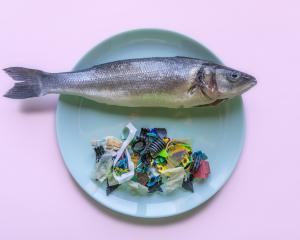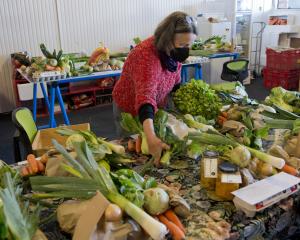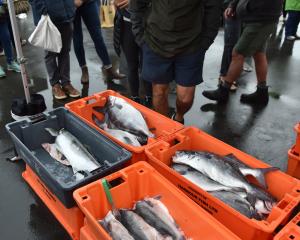

In New Zealand, we are aware of river pollution from farming, and perhaps the felling of rainforests globally for conversion to grazing, or the dead zones in the Gulf of Mexico from farm run-off, but few of us realise that more than half of the greenhouse gases produced in New Zealand come from livestock rather than fossil fuels.
The Parliamentary Commissioner for the Environment's 2016 report, ''Climate change and agriculture: Understanding the biological greenhouse gases'', pointed out the greenhouse gases we produce were made up of 44% carbon dioxide, 43% methane, and 11% nitrous oxide.
Bacteria in the stomachs of ruminants - sheep, cattle, deer and goats - produce methane which has about 23 times the heating potential of carbon dioxide, although it breaks down naturally after about 20 years. However, as we keep producing more, it builds in the atmosphere.
Nitrous oxide is mostly produced by bacteria in the soil from animal urine, but some also comes from fertiliser. Some leaches into our waterways and some is lost to the atmosphere. It is about 296 times more powerful as a greenhouse gas than carbon dioxide, the report says.
A recent study by University of Otago PhD candidate Garrett Lentz looked at knowledge about and attitudes to the severity of meat's environmental impact and found it low in comparison to other sustainable food behaviours.
Besides the greenhouse gases and environmental degradation, the inefficient use of resources and energy lost in raising animals is an issue. The land and water used to grow crops to feed animals could, Lentz says, more efficiently be used to grow crops to feed the world's population directly.
Other than the ethical issues of killing animals, there is also increasing evidence of the negative health effects of meat-eating and the benefits of plant-based diets, he says.
However, according to his study, New Zealanders, especially men, are not aware of the benefits of a plant-based diet to their health and the environment.
''To me, from a global scale it would be advantageous to eat lower on the food chain, eat less meat, less dairy, less fish as well,'' Lentz said.
Although Lentz completed his research in New Zealand, it's a global issue, he says.
''It's not like methane produced in New Zealand only affects New Zealand; it all goes into a global pool of greenhouse gases, and who knows where climate change impacts are going to hit the hardest, when are they going to hit, how are they going to hit.''
In her 2016 report, Dr Jan Wright, the then Commissioner for the Environment, said we must consider what we should do about our agricultural greenhouse gases, whether they should be included in the emissions trading scheme and how. Other ways of mitigation included changing farm management systems, developing different animal feeds, breeding, reducing the numbers of animals and finding other uses for for agricultural land, the report said.
But Lentz sums it up: ''I think if everyone ate less [animal protein] and we shifted to more plant-based foods we could feed more people, produce more food, produce less greenhouse gases, use less land, less water, and it may even be a necessary thing depending how populations and developing nations grow.''












